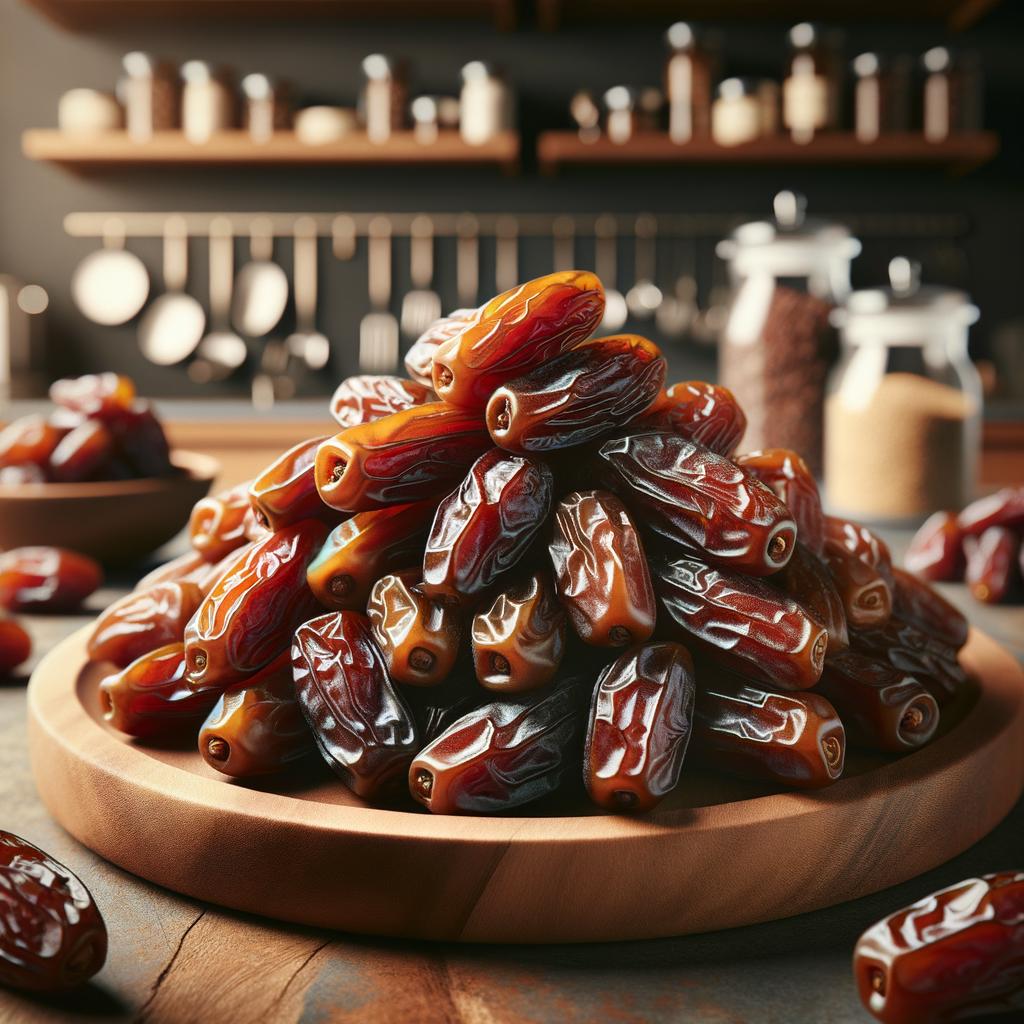Dried Dates

Description
Dried dates, the sweet fruits of the date palm tree, are small, oblong, and wrinkled like a well-loved book. The color varies from light golden to deep brown, depending on the variety and degree of dryness. The texture of these gems is a delightful paradox, being both chewy and tender at the same time. Their flavor is rich and sweet, reminiscent of honey, caramel, and even a touch of cinnamon. The unique characteristic of dried dates lies in their ability to retain their sweetness and flavor intensity even after being dried, setting them apart from many other dried fruits.
Primary Uses
Dried dates are a versatile ingredient, commonly used in both sweet and savory dishes. They can be found in Middle Eastern cuisine, where they are a key component in dishes like tagines, salads, and rice pilaf. In Western cuisine, they are often used in baking, adding sweetness and moisture to cakes, cookies, and bread. They can also be enjoyed simply on their own, or stuffed with nuts or cheese for a delectable snack. Beyond culinary uses, dried dates have been used for medicinal purposes, particularly in traditional medicine for their high fiber content and natural sweetness. Their cultural significance is profound, especially in Middle Eastern cultures, where they are a symbol of hospitality and are often served during Ramadan.
History
The history of dates goes back over 5,000 years, making them one of the oldest cultivated fruits in the world. Originating in the Middle East and North Africa, they were highly prized for their sweet taste and long shelf life, making them a vital food source for travelers and traders. Over time, their popularity spread along trade routes to Spain, Italy, and eventually to California, where they are still grown today. There are many romantic tales associated with dates, including the ancient belief that the Tree of Life in the Garden of Eden was actually a date palm.
Nutritional Information
Dried dates are a powerhouse of nutrition. They are packed with fiber, which aids in digestion, and are rich in essential minerals such as potassium, magnesium, and iron. They also contain vitamins A and K, and are a good source of natural sugars. Despite their sweetness, dried dates have a low to medium glycemic index, meaning they don't cause a large spike in blood sugar levels. When compared to other dried fruits, dates are higher in fiber and potassium, making them a healthier choice for a sweet snack. However, like all dried fruits, they are calorie-dense, so they should be enjoyed in moderation. Overall, dried dates are a delicious and nutritious ingredient, with a rich history and a multitude of uses.

